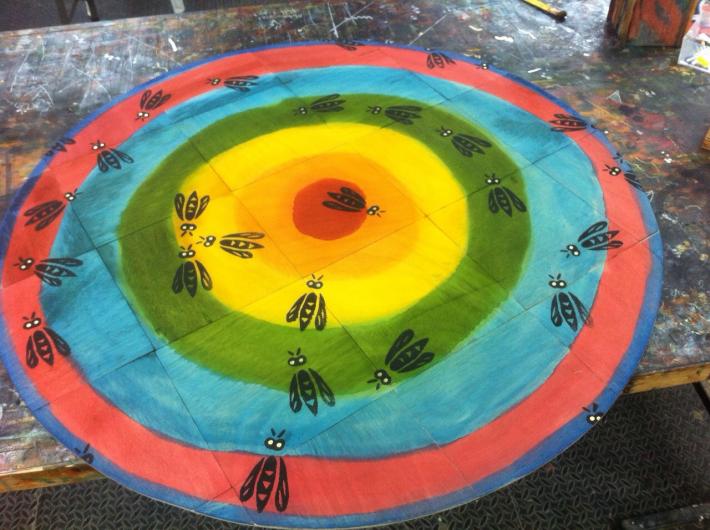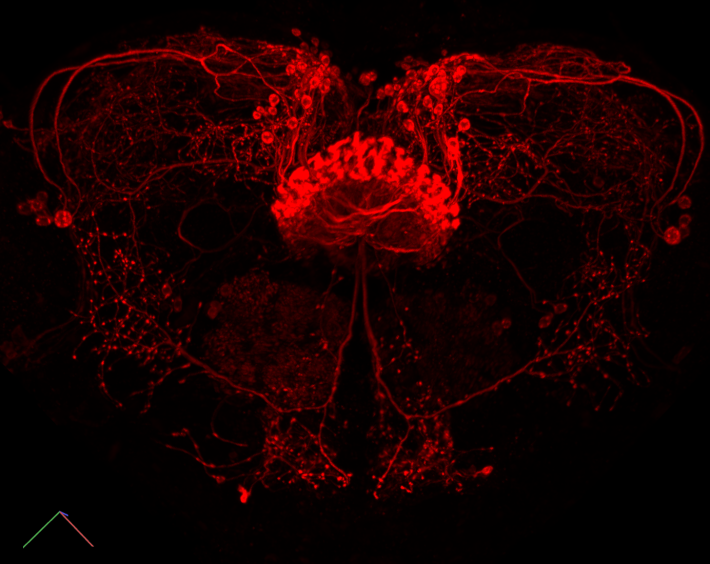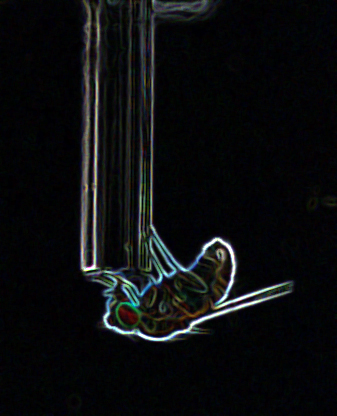
Prof. Galit Shohat-Ophir
Research
“how not to end up with a shopping cart full of Doritos when shopping on an empty stomach?"
Studying Neural mechanisms underlying the formation of gradual motivation
Motivation is a neuronal representation of physiological need states, like hunger, thirst and sex drive, that promote goal-directed behaviors aimed to obtain food, water and successful mating. The role of motivation is not simply to control what we dobut to determine when, how much and for how long we perform actions.
Most studies in the field focused on binary states, as if motivation is a black and white process, where, our lives happen in the gray area where motivation accumulates, to generate gradual responses. So practically, although gradients are an essential feature of motivation, very little is known about the neurobiology behind them.
Our studies aim to fill this gap, by systematically studying mechanisms underlying the formation of gradual hunger, thirst, and sex-drive. This will be achieved using state of the art technologies: automated and AI based behavior analysis, optogenetics, tissue specific genomic editing, single cell RNAseq, nano-scale resolution RNAseq within intact brain tissue, proteomics, computational analysis.
Our work will fundamentally change how we view motivation and behavior. It will impact our understanding of neuropsychiatric disorders, where there is an uncoupling of the precise need and resulting actions, as in eating disorders or addiction. Besides it relevance for human pathologies, our studies also explain the tremendous natural variation in so-called “normal” human behavior, from altering one’s metabolic set point, to dialing up and down the dynamic range of emotional responses.
Publications
- L. Omesi, M. Levi, A. Bentzur, YK. Kim, S. Ben-Sha’anan, R. Azanchi, U. Heberlein and G. Shohat-Ophir. (2023) Sexual deprivation modulates social interaction and reproductive physiology. bioRxiv 2022.04.27.441612; https://doi.org/10.1101/2021.04.27.441612
- J. Ryvkin, A. Shmueli, M. Levi, A.Jacob, T. Shalit, A.Bentzur, B. Agranovich, I. Abramovich, E. Gottlieb, D.R. Nässel & G. Shohat-Ophir. (2023) Sexual deprivation induces a CRF independent stress response and decreases resistance to stressors in Drosophila via a subpopulation of Neuropeptide F receptor-expressing neurons. bioRxiv 2022 https://www.biorxiv.org/content/10.1101/2022.03.02.482596v1
- A. Bentzur, S.Alon# & G. Shoha-Ophir#. (2022) Behavioral neuroscience in the era of genomics: tools and lessons for analyzing high-dimensional datasets. Int J Mol Sci. 2022 Mar 30;23(7):3811. # Corresponding authors. doi: 10.3390/ijms23073811. https://www.mdpi.com/1422-0067/23/7/3811
- Julia Ryvkin*, Assa Bentzur*, Anat Shmueli, Miriam Tannenbaum, Omri Shallom, Shiran Dokarker, Jennifer I.C Benichou, Mali Levi and Galit Shohat-Ophir. (2021) Transcriptome Analysis of NPFR Neurons Reveals a Connection Between proteome Diversity and Social Behavior. Front. Behav. Neurosci., 31 March
- Assa Bentzur*, Shir Ben-Shaanan*, Jennifer Benichou, Eliezer Costi, Mali Levi, Amiyaal Ilany and Galit Shohat-Ophir. (2020) Early life experience shapes male behavior and social networks in Drosophila. Curr biol. https://www.cell.com/current-biology/fulltext/S0960-9822(20)31603-1
Featured in Current Biology dispatch:
https://www.cell.com/current-biology/fulltext/S0960-9822(20)31759-0
- Anne L. Sapiro*, Anat Shmueli*, Gilbert Lee Henry, Qin Li, Tali Shalit, Orly Yaron, Yoav Paas, Jin Billy Li and Galit Shohat-Ophir. (2019) Illuminating spatial A-to-I RNA editing signatures within the Drosophila brain. * Authors contributed equally. Proc Natl Acad Sci U S A. 5;116(6):2318-2327.
- Zer-Krispil, S., Zak, H., Shao, L., Ben-Shaanan, S., Tordjman, L., Bentzur, A., Shmueli, A., Shohat- Ophir, G. (2018). Ejaculation Induced by the Activation of Crz Neurons Is Rewarding to Drosophila Males. Curr Biol 28, 1445-1452 e1443. Featured in Curr Biol. 2018 21;28(10):R614-R616.
- Ryvkin, J., Bentzur, A., Zer-Krispil, S., Shohat-Ophir, G. (2018). Mechanisms Underlying the Risk to Develop Drug Addiction, Insights From Studies in Drosophila melanogaster. Front Physiol 9, 327.
- Bentzur, A., Shmueli, A., Omesi, L., Ryvkin, J., Knapp, J.M., Parnas, M., Davis, F.P., Shohat-Ophir, G. (2018). Odorant binding protein 69a connects social interaction to modulation of social responsiveness in Drosophila. PLoS Genet 14, e1007328.
- Shohat-Ophir, G., Kaun, K.R., Azanchi, R., Mohammed, H., and Heberlein, U. (2012). Sexual deprivation increases ethanol intake in Drosophila. Science 335, 1351-1355. Featured in Nature doi:10.1038/nature.2012.10227. (Recommended by Faculty of 1000 as a must to read).
Media






Last Updated Date : 01/04/2025



